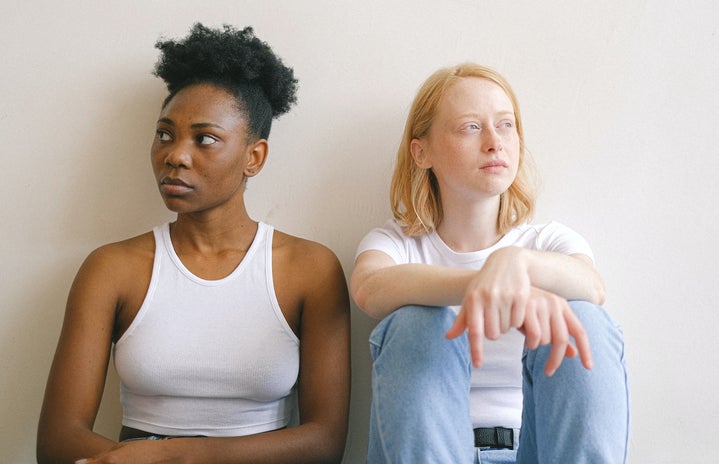Last year in my Intro to Communications class, my professor was leading a large lecture about online content creation. Specifically, we were discussing “prosumers,” or people who both produce and consume content online. As an example, my professor showed the class a YouTube video of two teenage girls reacting to a new music video from the beloved K-pop group EXO. In the video, the girls were smiling, dancing, and screaming with glee in response to the music video; you could tell that they were truly delighted by what they were watching. On the other hand, the people in my class didn’t respond to this reaction video in nearly the same way. As I glanced around the room, I saw people wincing, rolling their eyes, and groaning in response to the teenage girls’ animated excitement on-screen. “God, they’re so annoying,” I heard two boys sitting behind me complain in annoyance.
This collective reaction in my class caught me off guard. This YouTube video didn’t agitate me in the slightest, instead, all I saw was two young, happy girls expressing joy about something they love. As I walked out of Kane Hall and back to my dorm, I was puzzled by my peers’ negative responses. Why would my classmates feel so annoyed by these girls’ excitement? I wondered. While I pondered this question, I began thinking about how other groups of individuals express excitement, specifically men. I thought about how many times I had witnessed heterosexual men screaming at full volume over a football game on TV, or how many times I’ve heard boys in high school blast Travis Scott songs from their cars and wail out the lyrics as they perused through the parking lot. Not nearly as many people seem to be annoyed by these overt expressions of joy and excitement. Then it hit me: Double standards. Bingo, I thought.

Particularly, when girls and women express excitement about traditionally “feminine” hobbies or interests, like pop music, fashion, make-up, boy bands, or art, they are frequently cast as annoying or their interests are belittled and minimized. When girls express interest in traditionally “masculine,” interests like sports, STEM fields, or video games, they are sometimes cast as the girl that’s “not like most girls.” But, more often than not, girls interested in these masculinized hobbies are compared to the males who enjoy them, then characterized as inferior or accused of just trying to be “one of the boys” to get male attention. It’s a lose-lose situation and a double-bind nearly all girls and women have been in at some point in their lives.

So, what’s the solution to this? Is there even a solution? Well, like all forms of covert and overt sexism, the real solution is reconstructing our patriarchal social systems and institutions that promote sexist behavior so that they accept people of all genders and celebrate all types of interests. But while the fight for feminist systemic change rages on, we can make a difference as individuals by normalizing and welcoming female expressions of joy. The next time a girl or woman declares her excitement about something in an animated fashion, don’t roll your eyes or groan in annoyance, but rather smile back at her. The world is a better place when we all get to enjoy what we want to enjoy.



